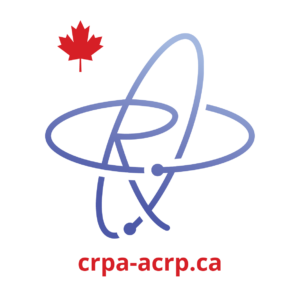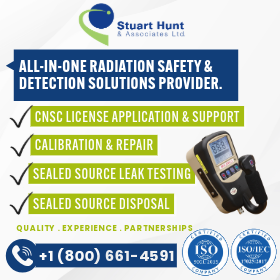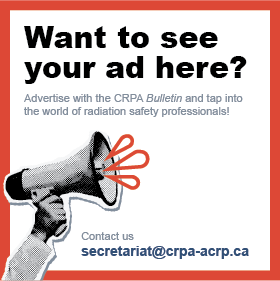CRPA(R) Prep, June 2020
![]()
Well, we’re certainly living in interesting times. As you know by now, the CRPA annual conference has been cancelled and, with it, this year’s CRPA(R) exam. As a result, we’re taking a slightly different approach for the CRPA(R) Prep article in this issue of the Bulletin.
Typically, we introduce a question similar to those that show up on an exam and we discuss solutions in the subsequent issue. This time, though, we’re going to forgo questions and focus on the exam itself.
For those of you who are thinking about writing the exam, you have a whole extra year to prepare! This article will give you a sense of what the exam is all about and how to prepare, tips on writing the exam, and some commonly encountered pitfalls.
Where to start?
I think the best place to start when you want to prepare for the exam is the Professional Recognition/Registration ‘PROCESS’ document on the CRPA website. There are so many good nuggets of information in there. It goes through the application process, talks about the exam and the core competencies that are covered, suggests references to read, and even provides some sample questions (if you haven’t been satisfied by the paltry selection I’ve offered thus far in the short lifetime of this column). Basically, 80% of what you read below has been shamelessly stolen from this document.
Exam format
The exam itself consists of 100 multiple-choice questions. Of these, you need to answer 75 correctly to pass.
To some people, that sounds great . . . to others, not so much. I tend to overthink multiple-choice questions and I can sometimes get rattled if what I think is the answer isn’t one of the choices. Some people don’t have this debilitating issue (lucky!). I usually take solace in the fact that, even if I have no idea how to answer a question, they have literally supplied the answer. (Albeit, it’s generally among some very clever distractors.)
So it’s a trade-off. If you like multiple-choice exams, you’re in luck. If you don’t, you’ll have to change your mindset and figure out how to make multiple-choice questions work for you. When all else fails, guess answer “C” . . . just kidding! The answers are randomly distributed, so although you’ll be right roughly 25% of the time, don’t actually do that.
You get a very generous three hours to complete the exam. That’s almost two minutes (1 minute, 48 seconds) per question. I’ll say more on that later.
Exam content
There are core-level competency sections on which questions are based. Following is an approximate distribution of the content.
Section |
Approximate % of exam |
Program administration
|
23 |
Radioactive inventory management
|
18 |
| Inspections, audits, and investigations | 17 |
| Employee qualifications and performance | 9 |
| Personnel dosimetry | 9 |
| Exposure and dose control | 8 |
| Instrumentation and equipment | 8 |
| Contamination control | 4 |
| Emergency procedures | 4 |
Exam preparation
There are several ways to prepare for the exam, and you know how you learn better than anyone. An experienced health physics specialist may not need as much preparation as a newer radiation safety professional. Either way, some preparation is definitely necessary.
First, I would consult the reading list provided in the process document I referred to in the “Where to start” section above. There are several textbooks listed in the document that provide relevant practise questions. I would practise, practise, and practise some more.
While CRPA does provide access to many Canadian Nuclear Safety Commission (CNSC) regulations during the exam, you should familiarize yourself with them in advance. You don’t want to waste valuable time rooting through a four-inch-thick binder without some sense of where to start looking.
You should also know that the Transportation of Dangerous Goods (TDG) Regulations are not supplied, but the Packaging and Transport of Nuclear Substances (PTNS) Regulations are. So, if you aren’t very familiar with TDG Class 7 shipping, spend some time getting to know those regulations.
It goes without saying that avid readers of this column (aptly titled “CRPA(R) Prep”) will have a big advantage!
General tips for exam writing
Before the exam, make sure you get a good night’s sleep. When you get up, make sure you eat before the exam. You don’t want to be distracted by an empty stomach when you should be concentrating on writing the exam.
Keep to your personal routine as much as possible. (I apologize to the subset of society for whom the ideas of sleeping well and eating a healthy breakfast are in direct opposition to your normal routine.) Do your best; these are just suggestions!
Also, probably best to avoid the hospitality suite the night before the exam. (Then again, I’m not your dad.)
Taking the exam
Before you start, make sure you read the instructions! Read through the entire exam and check for missing pages. Bring any discrepancies to the attention of the invigilator.
These are not hard-and-fast-rules, but if you’re looking for suggestions on how to complete the exam, I offer the following game plan.
Plan your time. As I said earlier, you get 180 minutes for 100 questions. If you budget 1.5 minutes for each question, you will have half an hour at the end to go over everything.
Start with the first question (novel, I know!) and work your way through the exam by answering only questions you immediately know how to do and skipping anything that doesn’t come to you right away. Trying to work through solutions can be time-consuming, and if you waste time on questions you don’t know how to answer, you risk running out of time to answer the questions you definitely know how to answer. Make sure you get credit for what you know.
If you skip a question as you go through, make notes and write down any ideas that come to mind that might help you when you come back to it. After you’ve attempted all the questions, go back to the questions you weren’t sure of and try them again. Keep repeating this until you’re out of time.
Read each question thoroughly. Note key words or phrases and circle or underline for emphasis if that helps you.
For trickier questions, do your best to eliminate distractor answers. Eliminate wrong answers to narrow things down. If you get stuck, remember that you probably know the answer . . . relax and it will come back to you. There is no penalty for wrong answers, so when all else fails, make sure you fill in your best guess.
Lastly, use all of the time provided. Double-check your calculations and your answers. Make sure you didn’t make any silly mistakes. Make sure you filled in the answer card correctly!
Common pitfalls
Here are some common pitfalls I have noted during my time on the CRPA Registration Subcommittee:
- Not taking the exam seriously enough—no matter who you are, you have to do some preparation
- Overthinking answers—just pick the one you think is the best, even if it might not be 100% accurate.
- Leaving questions blank—there’s no penalty for guessing, so at least eliminate some of the bad answers and narrow it down as best you can.
- Rushing through the exam—there are no bonus points for being done first, so take your time and look things over again when you are done.
- Filling in the answer card incorrectly—make sure you are filling in the right answer for the right question number. For example, if you skip questions you can accidentally put the answer for the next question in the skipped question’s spot; then your whole order gets messed up.
Conclusion
So that is about it. Go in with a positive attitude and do your best. Ask people who have written the exam for advice. Study, practise, and you could be our newest member!
Feel free to send me an email if you have other questions about the exam that I haven’t covered in this article. Also get in touch if you’d like to see a particular type of question covered in a future CRPA(R) Prep article.
 Christopher Malcolmson
Christopher Malcolmson
Christopher Malcolmson has been a health physicist at McMaster University since 2005. He received a BSc from McMaster in 2004 and an MSc in 2011. He completed his CRPA(R) in 2009, American Board of Health Physics certification in 2012, and National Registry of Radiation Protection Technologists exam in 2016. Malcolmson is the Registration Subcommittee exam coordinator. He is also a member of the International Radiation Protection Association’s Commission on Publications.


 Christopher Malcolmson
Christopher Malcolmson

